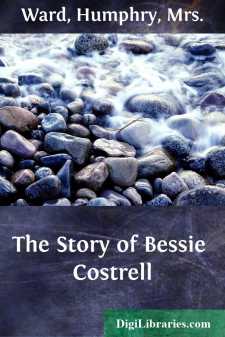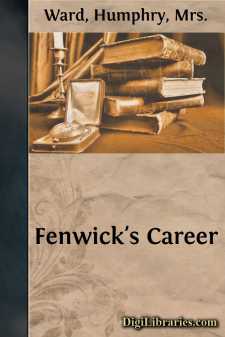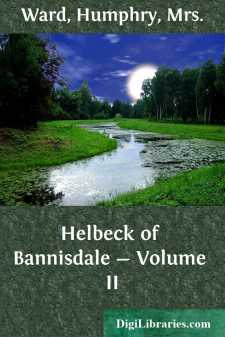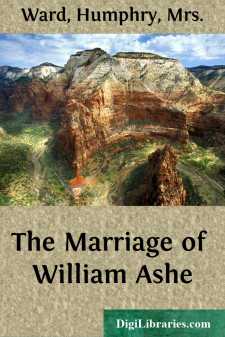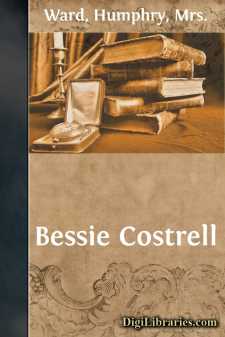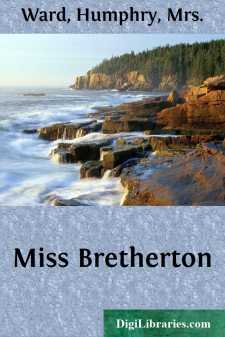Categories
- Antiques & Collectibles 13
- Architecture 36
- Art 48
- Bibles 22
- Biography & Autobiography 813
- Body, Mind & Spirit 142
- Business & Economics 28
- Children's Books 15
- Children's Fiction 12
- Computers 4
- Cooking 94
- Crafts & Hobbies 4
- Drama 346
- Education 46
- Family & Relationships 57
- Fiction 11828
- Games 19
- Gardening 17
- Health & Fitness 34
- History 1377
- House & Home 1
- Humor 147
- Juvenile Fiction 1873
- Juvenile Nonfiction 202
- Language Arts & Disciplines 88
- Law 16
- Literary Collections 686
- Literary Criticism 179
- Mathematics 13
- Medical 41
- Music 40
- Nature 179
- Non-Classifiable 1768
- Performing Arts 7
- Periodicals 1453
- Philosophy 64
- Photography 2
- Poetry 896
- Political Science 203
- Psychology 42
- Reference 154
- Religion 513
- Science 126
- Self-Help 84
- Social Science 81
- Sports & Recreation 34
- Study Aids 3
- Technology & Engineering 59
- Transportation 23
- Travel 463
- True Crime 29
Humphry Ward
Mary Augusta Ward, known by her pen name Mrs. Humphry Ward, was a prolific English novelist and social activist of the late 19th and early 20th centuries. She gained fame with her novel "Robert Elsmere" (1888), which explored themes of religious doubt and reform. Ward was also deeply involved in social causes, including education reform and the women's suffrage movement, although she notably opposed granting women the right to vote.
Author's Books:
Sort by:
by:
Humphry Ward
SCENE I It was an August evening, still and cloudy after a day unusually chilly for the time of year. Now, about sunset, the temperature was warmer than it had been in the morning, and the departing sun was forcing its way through the clouds, breaking up their level masses into delicate latticework of golds and greys. The last radiant light was on the wheat-fields under the hill, and on the long chalk...
more...
by:
Humphry Ward
CHAPTER I "I don't care a hang about the Middle Classes!" said Lord Buntingford, resting his head on his hand, and slowly drawing a pen over a printed sheet that lay before him. The sheet was headed "Middle Class Defence League," and was an appeal to whom it might concern to join the founders of the League in an attempt to curb the growing rapacity of the working-classes. "Why...
more...
by:
Humphry Ward
CHAPTER I Really, mother, I can't sit any more. I'm that stiff!—and as cold as anything.' So said Miss Bella Morrison, as she rose from her seat with an affected yawn and stretch. In speaking she looked at her mother, and not at the painter to whom she had been sitting for nearly two hours. The young man in question stood embarrassed and silent, his palette on his thumb, brush and...
more...
by:
Humphry Ward
TOWARDS THE GOAL No. 1 March 24th, 1917. DEAR MR. ROOSEVELT,вÐâIt may be now frankly confessedвÐâ(you, some time ago, gave me leave to publish your original letter, as it might seem opportune)вÐâthat it was you who gave the impulse last year, which led to the writing of the first series of Letters on "England's Effort" in the war, which were published in...
more...
by:
Humphry Ward
CHAPTER II. "Look out there! For God's sake, go to your places!" The cry of the foreman reached the ears of the clinging women. They fell apart—each peering into the crowd and the tumult. Mounted on a block of wood about a dozen yards from them—waving his arm and shouting to the stream of panic-stricken workmen—they saw the man who had been their guide through the works. Four...
more...
by:
Humphry Ward
I "He ought to be here," said Lady Tranmore, as she turned away from the window. Mary Lyster laid down her work. It was a fine piece of church embroidery, which, seeing that it had been designed for her by no less a person than young Mr. Burne Jones himself, made her the envy of her pre-Raphaelite friends. "Yes, indeed. You made out there was a train about twelve." "Certainly. They...
more...
by:
Humphry Ward
Chapter I "Not a Britisher to be seen—or scarcely! Well, I can do without 'em for a bit!" And the Englishman whose mind shaped these words continued his leisurely survey of the crowded salon of a Tyrolese hotel, into which a dining-room like a college hall had just emptied itself after the mid-day meal. Meanwhile a German, sitting near, seeing that his tall neighbour had been searching...
more...
by:
Humphry Ward
SCENE I It was an August evening, still and cloudy after a day unusually chilly for the time of year. Now, about sunset, the temperature was warmer than it had been in the morning, and the departing sun was forcing its way through the clouds, breaking up their level masses into delicate lattice-work of golds and greys. The last radiant light was on the wheat-fields under the hill, and on the long chalk...
more...
by:
Humphry Ward
CHAPTER I It was the day of the private view at the Royal Academy. The great courtyard of Burlington House was full of carriages, and a continuous stream of guests was pressing up the red-carpeted stairs, over which presided some of the most imposing individuals known to the eyes of Londoners, second only to Her Majesty's beefeaters in glory of scarlet apparel. Inside, however, as it was not yet...
more...
by:
Humphry Ward
CHAPTER I. "The mists—and the sun—and the first streaks of yellow in the beeches—beautiful!—beautiful!" And with a long breath of delight Marcella Boyce threw herself on her knees by the window she had just opened, and, propping her face upon her hands, devoured the scene, before her with that passionate intensity of pleasure which had been her gift and heritage through life. She looked...
more...


